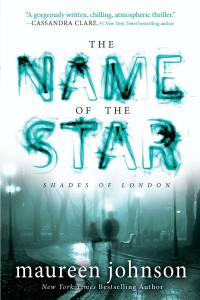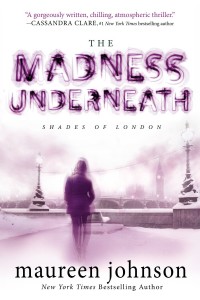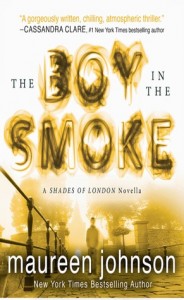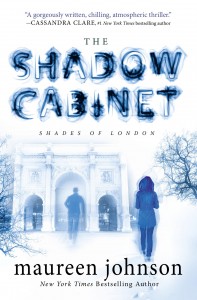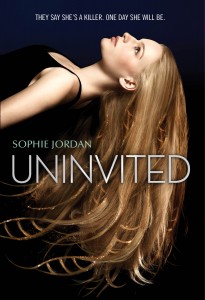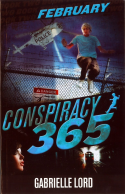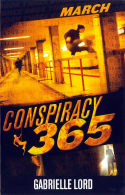 Bellfield Hall by Anna Dean
Bellfield Hall by Anna Dean
The year is 1805. Dido Kent, unmarried aunt, is summoned to Bellfield Hall by her niece, Catherine, to look into the disappearance of Catherine’s wealthy betrothed, Richard Montague. Soon after her arrival, a woman turns up dead in the shrubbery. Dido makes inquiries into both matters while getting to know the residents and her fellow visitors.
There’s a quote from Anne Perry on the cover that says, “Characters one cares about immediately and a mystery that becomes more urgent with every page.” I regret to say this claim is false, at least in my personal experience, because this book took me nearly 2.5 years to finish. One of my major obstacles was that it took a very long time for the bevy of houseguests to resolve into distinct characters. For example, it was not until the 60% mark that three young women (including Catherine) display a personality characteristic beyond “flighty.”
Thankfully, the book does improve quite a lot after this point, with Dido helping two of the ladies avoid unwanted marriage proposals, and all the various clues coming together in a satisfying solution that I had not predicted. I also appreciated Dido’s naivete in certain areas. At one point, one of the guests, Colonel Walborough, confides that he stands to inherit his uncle’s fortune only if he gets married. He is simultaneously harassing a handsome young footman. Dido assumes he’s a womanizer because “she could think of no other irregularity in a man’s life for which marriage might be considered a cure.”
Despite the slog, I did like this well enough in the end that I will probably proceed to the next in the series. Let’s hope it does not take another 2.5 years to finish.
 The Bullet That Missed by Richard Osman
The Bullet That Missed by Richard Osman
In The Bullet That Missed, the Thursday Murder Club is investigating the murder of Bethany Waites, a TV journalist whose car was found at the bottom of a cliff after she’d made a breakthrough in her investigation into a VAT fraud scheme. This brings them into the orbit of Mike Waghorn, Bethany’s former co-anchor, who loved Bethany because she helped him accept himself as a gay man, and Pauline Jenkins, Mike’s make-up artist, who soon becomes a new love interest for Ron. As a subplot, Elizabeth and Stephen are kidnapped by “the Viking,” who instructs Elizabeth to kill her old friend and former KGB agent, Viktor Illyich, or the Viking will kill Joyce.
There was much to like in this latest installment! Often with mysteries I have an inkling as to who the culprit is just by virtue of their function in the narrative, but this time I had no idea. I think that’s probably because Osman has a track record of introducing people doing crime and promptly turning them into recurring characters with insecurities and foibles. Connie Johnson, for example, returns here to help Ibrahim investigate a fellow inmate, one of the participants in the VAT fraud, while also receiving therapy from him that forces her to question whether she’s really all bad like she’s convinced herself. And when Ron questions Jack Mason, another VAT fraud participant, the latter is mostly just grateful to have someone to play snooker with again because he’s gotten old and lonely.
I continue to be charmed by the core gang of four. I think fussy and meticulous Ibrahim is probably my favorite, but Joyce’s diary entries make me laugh the most. The continuing mental deterioration of Stephen is deeply sad, but I love that glimmers of his brilliance still remain and that he was able to discover the Viking’s identity when not even Elizabeth had managed to do so. Really, my one quibble is that a new character is introduced to Coopers Chase, loves it, considers moving there and then, at the end of the book, doesn’t. Why not?
The unabridged audiobook I listened to concluded with an interview with Richard Osman in which he stated his intention to continue producing one of these books each year. Sir, thank you for your service. I am so here for it.
 Double Tragedy by Freeman Wills Crofts
Double Tragedy by Freeman Wills Crofts
This is the 24th mystery by Freeman Wills Crofts to feature Chief Inspector Joseph French of Scotland Yard, and while I ordinarily very much dislike reading a series out of order, this is one of those times where that doesn’t really matter.
Originally published in the UK as The Affair in Little Wokeham (and soon receiving a reprint under that title), Double Tragedy begins by painting the portrait of a new family who has moved to the tiny village of Little Wokeham in Surrey and of the mild-mannered doctor who gets swept up in their affairs. Dr. Anthony Mallaby once had grand ambitions but an untimely illness thwarted his plans and though his village practice is successful enough, he still considers himself a failure. When he meets Christina Winnington, one of the new occupants of Hurst Lodge, he’s instantly taken by her honesty and kindness and falls in love over a period of months.
Hurst Lodge has actually been purchased by Christina’s uncle Clarence Winnington, a rich yet domineering man given to hurtful sarcasm, who has promised his nieces and nephew (Christina has two siblings, Bellisa and Bernard) each one-third of his estate if Christina and Bernard will keep house for him until he passes away. (Bellisa has married her former boss, saturnine Guy Plant.) Obviously, someone cannot wait for that to happen naturally, so the old fellow gets done in. Before French is called in to investigate, Dr. Mallaby, seeking to protect Christina’s happiness as much as possible, discovers and withholds evidence (a fountain pen, to my delight!) that he believes proves Bernard’s guilt.
This title is an inverted mystery, which means readers know the culprit from the outset and it’s just a matter of time while French puts the clues together. I liked a lot of the characters in this book and enjoyed reading chapters from various points of view. The ending is also very satisfying. However, if there’s one weakness in the narrative it’s in how the reader almost receives too much information. We are told practically everything about how the murderer commits his crimes, to the point where when one small piece is overlooked (the disposal of several specific incriminating items is mentioned but what about the other one?) one wonders if it’s supposed to be significant or not. Similarly, we go through every step of French’s thoughts where he leans one way then decides he is wrong over and over. I still really liked it and intend to read more by Crofts but now I understand why an adjective that seems to crop up a lot regarding this series is “plodding.”
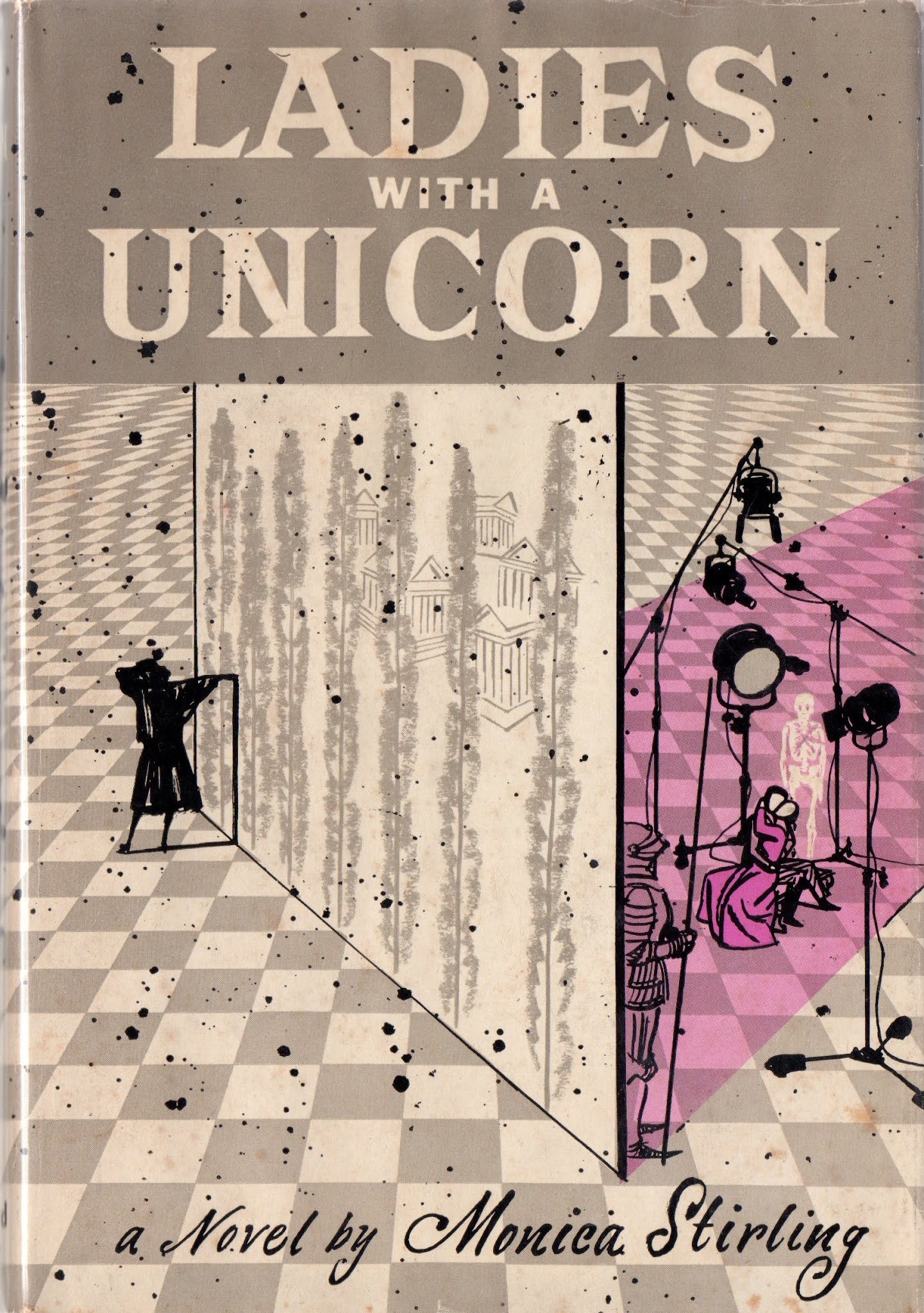 Ladies with a Unicorn by Monica Stirling
Ladies with a Unicorn by Monica Stirling
I’m a big fan of the book blog Furrowed Middlebrow and have been enjoying Scott’s progress through the novels of Monica Stirling. When he declared that Ladies with a Unicorn is now his favorite of the lot, I had to track it down.
The setting is Rome in the early 1950s. Françoise Joubert is a composer who is presently working on a new film by Italian director Count Anton-Giulio Sarmento. She’s a withdrawn person—she both lost her husband (a resistance fighter arrested, tortured, and killed by the Germans) and sustained terrible facial injuries during the war—but is pulled into new social circles when a former classmate, Peggy Latour, unexpectedly arrives in Rome and requests they meet up. Later, Françoise meets 18-year-old Anna-Maria Minsell, who has flown in from London to star in Anton-Giulio’s film, and Princess Valeria Girafalcone, Anton-Giulio’s effusive cousin.
About two-thirds of the way through this I realized there actually isn’t much of a plot at all, but the novel remains fascinating despite that. It’s all about the female characters and, ultimately, their feelings for Anton-Giulio. Françoise has turned her face (expressionless and disconcerting after multiple surgeries) from the present and dwells in the sorrows of the past; Peggy is bored, her exciting war-time marriage turned bland; Anna-Maria is both sensible and sensitive; and Valeria is impassioned, theatrical, and maddening. Anton-Giulio is the unicorn of the title, often discussed but seldom appearing, like some mythical creature, and everyone has their own idea of the kind of person he is.
I enjoyed Stirling’s writing style very much. There were many turns of phrase to admire and absurd details to be delighted by—I hope I never forget the description of the stationery Valeria commissioned for one of her pet projects—mingled with reminders of terrible things that happened during the war. Anna-Maria is much affected by visiting the site of a particular atrocity and then returning to the city, where everyone is just going about their lives as usual. I had expected the novel to end in a more conventional way than it ultimately did, and I’m glad Stirling went in another direction because it really reinforced the idea that you can’t let the past continue to make you miserable forever. At some point, you’ve got to decide to keep living.
I’m very glad I read this and hope to read more by Stirling someday.
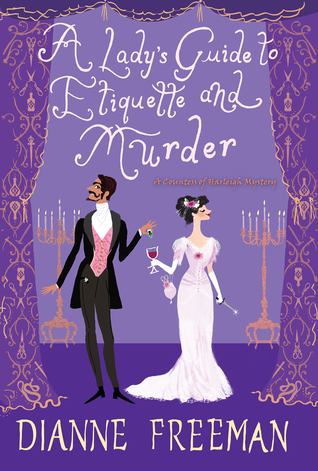 A Lady’s Guide to Etiquette and Murder by Dianne Freeman
A Lady’s Guide to Etiquette and Murder by Dianne Freeman
There are literally dozens of cozy historical mystery series featuring a plucky female sleuth, often a young widow, and for whatever reason they always appeal to me. (If I’m honest, part of the reason I was tempted by A Lady’s Guide to Etiquette and Murder is that the cover is so cute.) I figured I’d start sampling them in hopes I’d find something I really like.
It’s April 1899 and American-born Frances Wynn, widowed Countess of Harleigh, has just endured the requisite one-year period of mourning after the death of her philandering husband, Reggie. Frances can no longer tolerate living with her husband’s family and obtains a house of her own in Belgravia. Her in-laws aren’t happy about this, as they had counted on using her money to fund repairs to Harleigh Manor. Frances relishes her newfound independence though is taken aback to discover that her new neighbor is George Hazelton, one of two people who knows that Reggie actually died in the bed of another woman.
Complications soon ensue. Inspector Delaney from the Metropolitan Police comes calling to ask questions about Reggie’s death, Frances’ brother-in-law files a claim to gain control of her money, and Frances’ mother sends her younger sister over from America with the expectation that Frances will find her a suitable husband. Also, there’s a jewel thief and George keeps being both helpful and hawt.
Dual mysteries run throughout—was Reggie actually murdered and who is the jewel thief? The first is solved in a thoroughly anticlimactic way with a sudden confession, though the latter does require at least a little investigative effort on Frances’ part. Unfortunately, one line of dialogue about 30% through gave away a large part of the solution for me. Too, I was bothered enough by seeming anachronisms to go into research mode several times. For most of these, I determined that the usage was at least potentially fine, but using the term “stalking” to refer to following someone in a menacing way is definitely more modern than 1899.
I wouldn’t say that this book is great, but I did find it entertaining. It’s a nice piece of fluff, and sometimes I appreciate that. I liked Frances and George and am interested enough that I shall proceed on to book two at some point.
 Murder by Inches by Stanley Hopkins Jr.
Murder by Inches by Stanley Hopkins Jr.
I first became aware of this obscure title from 1943 through the delightful book blog crossexaminingcrime. A mystery in which cats figure prominently seemed like my sort of thing and, without much hope, I submitted an interlibrary loan request. To my surprise, a copy was found!
Murder by Inches is narrated by Angela Thorpe, a recent college graduate who is biding her time at home (Cheswick, NY) during the summer while she waits to start a teaching position in September. Her plans involve nothing more than reading Lucretius and Virgil and tutoring a local teen. Instead, when the owner of the local newspaper turns up dead and a charming newcomer, Peter Marrell, asks for her help after the police chalk it up to suicide, she gets roped into the investigation. The mystery itself is, alas, not terribly interesting, involving German efforts to sabotage a shipyard and hinder the American war effort, though it does allow for some fun escapades which frequently run toward breaking and entering. Also, there was a weird moment where the sleuths discuss in front of the shipyard owner that his wife had been seduced and blackmailed and he has zero reaction to this information.
However, I still enjoyed the book very much, which is due to the writing style and the prickly heroine. Angela is a scholar and mostly just wants to be left alone. Early on in the book, her attempts to read outdoors are repeatedly thwarted by Evelyn, the little girl who lives next door. Angela’s interactions with the girl reminded me a lot of a story in Allie Brosh’s Solutions and Other Problems.
There are some great descriptions of side characters—“as unnoticeable as an apostrophe and made of the same general shape” and “a tall, angular woman who looks and moves like a poorly adjusted marionette”—and I also appreciated that Angela expresses frustration with being expected to follow Peter around while he looks for clues.
”I want to help, but I don’t want to have to trot about after you merely as a sort of observer. My time is as valuable as anyone’s, and I’m going home to get some work done. Let me know if I can really be of some use.”
Peter, infuriatingly, reacts as though this is funny. I never did warm to Peter, in fact, and though there is evidently a second book featuring his detection efforts, I am loathe to read it unless it’s also narrated by Angela. I am, however, very glad to have read this one!
 My Own Worst Frenemy by Kimberly Reid
My Own Worst Frenemy by Kimberly Reid
This series has been on my to-read list for a long time. A Black teen girl detective? Yes, please!
Chanti Evans is the daughter of an undercover cop. Though she and her single mom (Lana) live in a Denver neighborhood where admiration for the police is decidedly uncommon, Chanti still thinks it’s a cool job and prides herself on the detective skills that she’s learned from Lana. When Chanti makes a bad decision over the summer (involving her new friend, MJ, who previously spent some time in juvenile detention) Lana strives to keep her out of trouble by enrolling her at ritzy Langdon Prep rather than the regular high school the rest of her friends are attending. Unfortunately, Chanti and the other “scholarship kids” (including hunky love interest Marco Ruiz) are soon blamed for a series of thefts on campus and, later, some home burglaries.
There were good and bad things about this book, though the good does outweigh the bad. To begin with some negatives, we are told multiple times that Chanti notices everything. How, then, has she failed to notice that people usually require a writing implement while attending school? How then, did she immediately plow over some dude’s birdbath when tooling around in her friend’s BMW? It felt like her character was sacrificed to move the plot along. Another weird contradiction occurs when, on page 120, she tells her friend Tasha about the accusations at Langdon and requests Tasha not tell her mother. On page 124, Chanti volunteers all this information to her mother herself without an explicit change of heart. Perhaps another editorial pass might’ve caught and dealt with these contradictions.
That said, I quite liked how much Chanti seeks out Lana’s help with her investigation; it evoked some Keith/Veronica Mars feels. While some of the dialogue is clunky, several lines of Chanti’s internal monologue made me laugh, like when she refers to Tasha as “the weave whisperer” or, after committing the cardinal sin of letting Marco know she is hungry, tries to “think of something else I can do to let him know I’m a delicate flower.” Lastly, while it’s fairly easy to figure out some of the solution to the thefts and burglaries, there were aspects that I hadn’t been able to predict.
I also read the prequel short story “Looking for Trouble,” which rehashes and fleshes out Chanti’s aforementioned bad decision over the summer before she started at Langdon Prep. I didn’t like how it retconned a couple of things established in My Own Worst Frenemy, turning MJ from an inadvertent accessory to crime to an active participant in crime and having Chanti encounter Marco a couple of times at her summer job instead of meeting him for the first time on the first day of school. The additional detail on her neighborhood, though, was great and gave me a much better sense of Aurora Avenue and the people who live there.
 A Night in the Lonesome October by Robert Zelazny
A Night in the Lonesome October by Robert Zelazny
I was convinced to read this by an article on io9 and joined in on the fan ritual of reading one chapter per day throughout the month of October.
A Night in the Lonesome October is narrated by Snuff, a dog who is something more than just a dog. Snuff provides invaluable aid to his master, Jack, who is tasked with procuring various ingredients for a ritual happening at the end of the month known as “the Game.” (We are to presume he is Jack the Ripper, as he has both a wicked knife and a bloodlust curse, though perhaps they are one and the same.) Over the course of daily chapters we’re introduced to the other players in the Game and their animal companions, and eventually learn about the opposing factions and their goals. Characters like Dracula, Frankenstein, The Wolf Man, and Sherlock Holmes figure prominently. However, the standout character for me was Graymalk, cat companion to a witch named Jill.
Although I started off enjoying the amusing writing a good deal, around the middle I started to get bored. One of Snuff’s jobs is to triangulate the location of the ritual based on the residences of the participants, and he does this over and over as he receives new information. It grew monotonous. The real nadir, though, comes during an eye-glazingly dull excursion across a Lovecraftian dreamscape. After that, thankfully, things start to pick up again and I was genuinely invested until the conclusion, where several threads tie together in a satisfying way.
While I didn’t love the book as much as its ardent admirers do, I’d say that overall it’s pretty good. I wish it were spookier and that we learned more about Jack—the most intriguing of the human characters—but it was still fun to take part in the tradition.
 The Push by Ashley Audrain
The Push by Ashley Audrain
Maternal instincts have never run strong in Blythe Connor’s lineage. As a result, she doubts her own ability to be a good mother, but when her husband Fox is enthusiastic to start a family, she relents. Things don’t go well with their first child, a girl named Violet, and Blythe is miserable, exhausted, detached, and neglectful. She’s also convinced something is wrong with their daughter, while Fox ascribes any difficulties to Blythe herself. As Violet gets older, she torments her classmates and was also potentially responsible for a fatal playground accident. (Blythe suspects this is the case, but can’t be sure.) After a few years, Blythe conceives again, and this time her bond with her son Sam is immediate and strong. Unfortunately, it’s clear from the start that Sam is not long for this world.
I’ve seen The Push described as a thriller, but that’s not really accurate. It’s more of a psychological portrait of a mother with a traumatic past who can’t trust her own perceptions regarding her daughter’s possible sociopathy. At first, I wondered if I would be able to identify with a story that was so steeped in motherhood, as a person who has never had even the remotest desire to procreate. As it turned out, I identified with Blythe to an immense degree, as someone who suffers from anxiety, and is prone to think something is wrong when it isn’t… unless it actually is. I often doubt my own perceptions and have been told more than once that I’m making something out of nothing, as Fox tells Blythe.
Some aspects of the story are predictable (especially a name drop you know is going to develop a certain way later), but that didn’t bother me. I thought the portrayal of Blythe’s grief was agonizing (in a good way), and I really appreciated that she does some genuinely unhinged stuff, causing me to wonder whether she might be an unreliable narrator after all. On the negative side, because the whole book is told in the form of Blythe explaining her side of the story to Fox, we don’t gain access into anyone else’s thoughts, and as a result, I’m not entirely sure where Violet was coming from throughout. She claimed to hate her mother, but yet wanted to be wanted by her? I suppose those two things are not mutually exclusive.
Ultimately, although there are a few things I could quibble with, I thought The Push was excellent and engrossing. I look forward to reading more from this author!
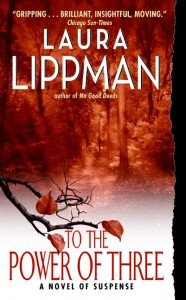 To the Power of Three by Laura Lippman
To the Power of Three by Laura Lippman
Kat, Perri, and Josie had been friends since the third grade. But in their senior year of high school, a rift develops and Perri is no longer talking to the other two. Many speculate that it has something to do with Kat, only looking for more extracurricular activities with which to pad her college application, ending up with the lead in the school musical instead of Perri, the serious drama student. Neither girl will explain, not even to Josie, but nobody expects Perri to bring a gun to school and shoot Kat in the girls’ bathroom.
With Kat dead and Perri in a coma after turning the gun on herself, Josie is left to explain events to the police. Only, she’s used to letting Perri do the talking and her story is not adding up for the detectives, who note some discrepancies between Josie’s version of events and the physical evidence. Of course, we do get the whole story eventually. Some reviewers have been disappointed in the ending, but though some scenes are a little clunky—particularly one in which the lead detective makes a special trip to Josie’s house seemingly just to explain a detail about a locked stall door—I liked how it builds upon hints that Kat had never been as nice nor as perfect as people had believed her to be.
In between, we learn the history of the trio’s friendship and their interactions with some uncool farm girls, one of whom has a secret about the shooting, a fact that readers are reminded about approximately eleven times. We also learn about the idealistic young guidance counselor, the fractious relationship between Kat’s now-divorced parents, Perri’s friend from drama club who knew she had the gun but didn’t want to risk losing her friendship by telling anyone about it, and the recent college graduate with cinematic ambitions who used to date Kat and who is still strangely compelled to try to earn her father’s approval.
It’s a lot and it probably goes on a bit too long, but I did find it interesting and look forward to reading more Lippman in the future.


 The Hunger Games
The Hunger Games Catching Fire
Catching Fire Mockingjay
Mockingjay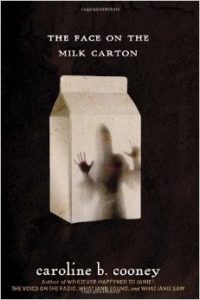 The Face on the Milk Carton
The Face on the Milk Carton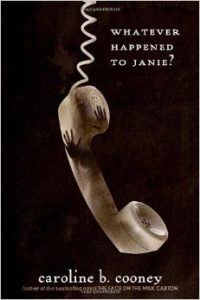 Whatever Happened to Janie?
Whatever Happened to Janie?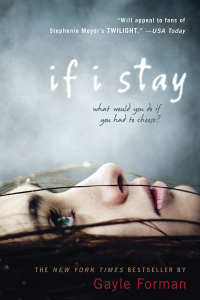 If I Stay
If I Stay Where She Went
Where She Went Are You in the House Alone? by Richard Peck
Are You in the House Alone? by Richard Peck The Automatic Detective by A. Lee Martinez
The Automatic Detective by A. Lee Martinez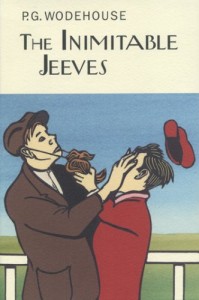 The Inimitable Jeeves by P. G. Wodehouse
The Inimitable Jeeves by P. G. Wodehouse The Murders of Richard III by Elizabeth Peters
The Murders of Richard III by Elizabeth Peters A Perfect Match by Jill McGown
A Perfect Match by Jill McGown Reconstructing Amelia by Kimberly McCreight
Reconstructing Amelia by Kimberly McCreight
 Why Did You Lie? by Yrsa Sigurdardottir
Why Did You Lie? by Yrsa Sigurdardottir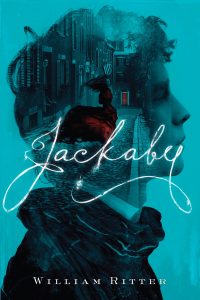 Jackaby
Jackaby “The Map”
“The Map”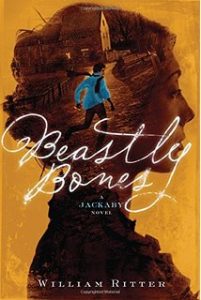 Beastly Bones
Beastly Bones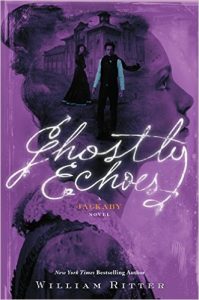 Ghostly Echoes
Ghostly Echoes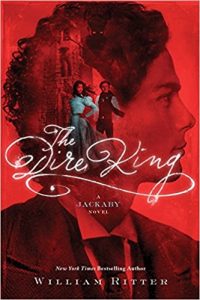 The Dire King
The Dire King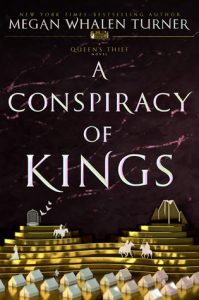 A Conspiracy of Kings
A Conspiracy of Kings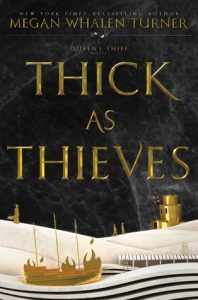 Thick as Thieves
Thick as Thieves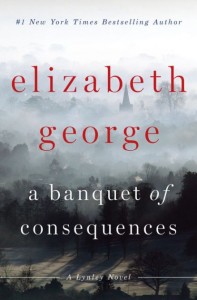 A Banquet of Consequences by Elizabeth George
A Banquet of Consequences by Elizabeth George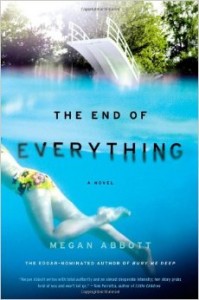 The End of Everything by Megan Abbott
The End of Everything by Megan Abbott The Ex by Alafair Burke
The Ex by Alafair Burke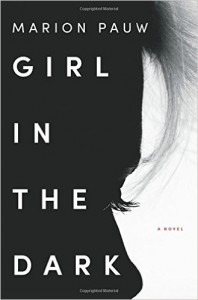 Girl in the Dark by Marion Pauw
Girl in the Dark by Marion Pauw Mr. Kiss and Tell by Rob Thomas and Jennifer Graham
Mr. Kiss and Tell by Rob Thomas and Jennifer Graham The Mysterious Affair at Styles by Agatha Christie
The Mysterious Affair at Styles by Agatha Christie The Outpost by Mike Resnick
The Outpost by Mike Resnick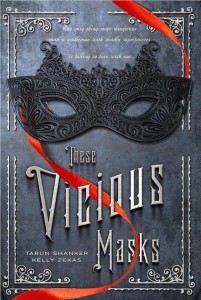 These Vicious Masks by Tarun Shanker and Kelly Zekas
These Vicious Masks by Tarun Shanker and Kelly Zekas